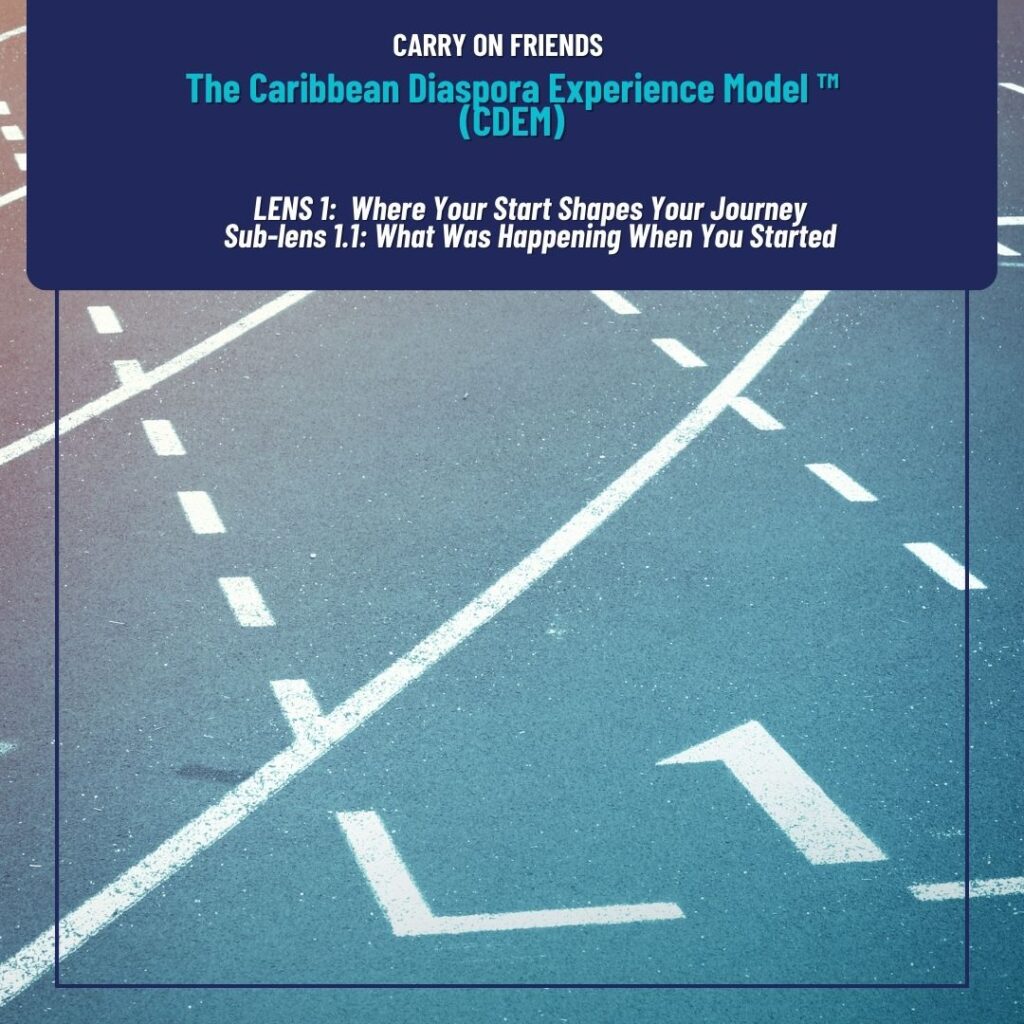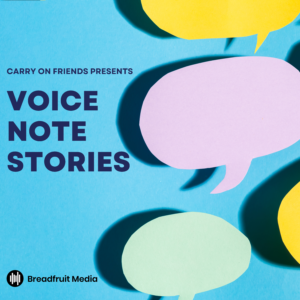
Lens 1 of the Caribbean Diaspora Experience Model (CDEM) – Caribbean Diaspora Identity Starting Points
A few months ago I introduced the Caribbean Diaspora Experience Model™ (CDEM), a new way to understand how our Caribbean identity forms, evolves, and expresses itself in the diaspora. Created through real-life experiences, this model provides the language many have been missing to describe their complex cultural journeys. At the heart of CDEM are six interconnected lenses that help individuals understand their relationship with Caribbean culture.
The Six Lenses of CDEM
Here’s a brief overview:
- Where You Start Shapes the Journey: Whether you migrated as an adult or were born in the diaspora, your connection to Caribbean culture starts somewhere. That starting point matters.
- Where You Live + What You Seek = How You Connect: Living in Brooklyn versus Milwaukee isn’t just geography, it’s a different experience of Caribbean culture. Where you live + your intention shapes your connection.
- Cultural Anchors Keep Us Rooted: Food, music, language, celebrations, spirituality, and family. These are the touch points that carry memory and transmit knowledge.
- Your Identity Will Shift, That’s the Point: As we age, our relationship with culture evolves. It’s not loss, it’s recalibration.
- Cultural Identity Influences How We Show Up at Work: Our work ethic, ambition, and how we navigate professional spaces are all shaped by cultural values.
- You’re Not Either/Or, You’re Both/And: Being fully Caribbean and fully American/Canadian/British at the same time is not a contradiction, it’s our strength.
Lens 1: Starting Points Matter
In this episode I dive deeper into Lens 1 of the Caribbean Diaspora Experience Model (CDEM): Where You Start Shapes the Journey. This lens identifies six starting points and each creates a different foundation for how cultural identity forms, shifts, and expresses itself.
- Caribbean-born: adult migration (18+),
- Caribbean-born: 9–17 migration,
- Caribbean-born: under 9 migration,
- Diaspora-born: connected to culture
- Diaspora-born: disconnected from culture
- Transnational/multi-location.
Someone who migrated as an adult versus someone who was born in America with Caribbean parents will experience Caribbean culture differently. The adult migrant carries strong memories and established cultural norms, experiencing migration as a conscious choice. They often face challenges adapting their established identity to a new environment, particularly around the awareness of race in countries like the United States, Canada, or the UK. This contrasts dramatically with those who migrated during formative years (ages 9-17), who navigate disruption to their identity during critical developmental periods, often adapting more quickly but experiencing deeper identity questions.
Those who migrated as young children (under 9) often maintain emotional connections to Caribbean culture despite having few concrete memories of the region. Meanwhile, diaspora-born individuals who grew up connected to culture experience being culturally Caribbean inside the home and something else outside, a duality that shapes their identity. There are also those who were disconnected from their Caribbean heritage and later embark on reconnection journeys, and those with transnational experiences who’ve lived significantly in both spaces.
Sub-Lens 1.1: What Was Happening When You Started
I also introduce Sub-Lens 1.1: What Was Happening When You Started, which considers the historical, political and social context. Did your family migrate in the 70s, 80s, or 90s? Were you born pre- or post-internet? Did your parents encourage open expression of culture, or did they silence it to keep you safe? The decade of migration and these external forces, alongside your starting point, deeply influence your relationship with culture and shape cultural expression and opportunities.
Conclusion
CDEM doesn’t rank these different starting points. None is better or worse, just different. Instead, we gain language to better understand our experiences, as well as compassion for family members whose cultural ties and experiences look different. What one sibling remembers vividly, another may only know through stories. CDEM helps us see these differences not as divides, but as parts of a bigger, layered journey.
By acknowledging where we began, we gain insight into how we navigate cultural spaces and why certain aspects of identity formation may have been challenging or seamless for some compared to others.
At its core, Lens 1 reminds us: starting points matter. They’re not permanent categories, but they help us understand the foundation of who we are, and how we grow.
What is your starting point? What was happening during your starting point?
About Caribbean Diaspora Experience Model (CDEM
The Caribbean Diaspora Experience Model (CDEM) isn’t an academic theory. It’s a reflection of real-life stories: mine, my family’s, my friends and stories heard through the podcast. It’s grounded in observation, personal growth, and years of conversations in our community.
I created this model not just to help me understand myself, but to help us understand each other better. My hope is that it gives you language to articulate your experience, connect across generations, and build cultural confidence wherever you are in the diaspora.
Stay Connected
Connect with @carryonfriends – Instagram | Facebook | YouTube
Enjoyed the show? Please remember to leave a rating and review in Apple Podcasts.
A Breadfruit Media Production: Instagram


